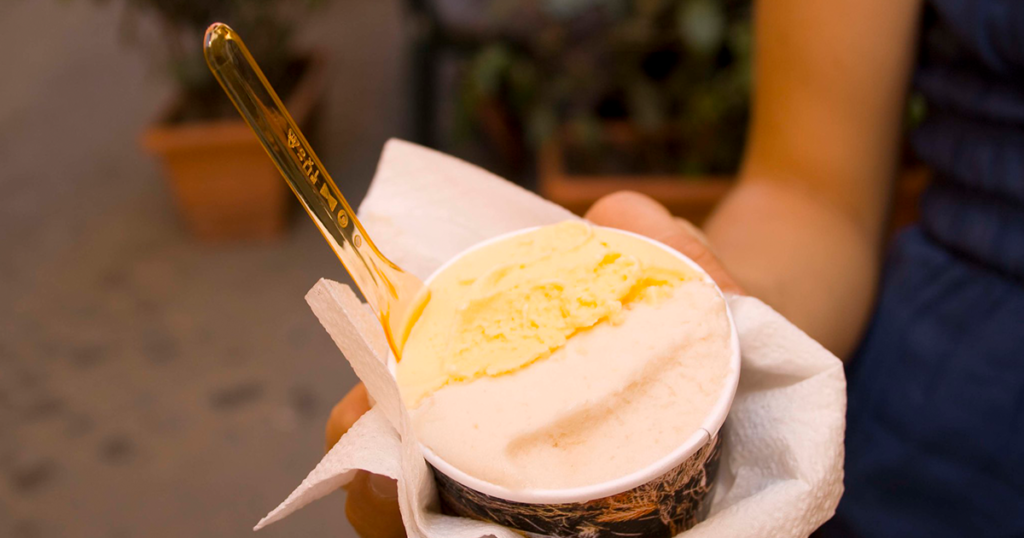
When my friend’s granddaughter, two and a half years old, crawled under the drying rack on the sun porch with a wooden spoon in her hand, he assumed she’d gone there to cook up something. But no, the spoon was not a cooking spoon but an ice cream scoop, and she did not stir an imaginary soup pot but began to serve up ice cream cones. It was October already, but it’s always the right season for ice cream.
“What flavor?” she asked her grandfather from under some dishtowels drying in the sun. They made an awning for the ice cream shop.
Her grandfather considered. “Vanilla.”
The little girl dug her spoon into an imaginary carton, packed the imaginary cone, and handed it out to her grandfather, who had to stoop to take it. “Gracias,” he said. Some weeks earlier, the child had begun insisting that others thank her so she could respond with her newly acquired phrase, de nada, which is the usual way of saying you’re welcome, though its literal meaning is “Not at all” or “It’s nothing.” She used it again, full of importance, giving the two words her particular emphasis, as if they were the punch line to a joke. Her grandfather turned away, licking his imaginary ice cream.
He didn’t get far. “Eh!” his granddaughter said before he’d taken a step. “Dinerito!” Money.
He put his hand into his pocket and pulled out an imaginary euro. Imaginary money for imaginary ice cream seemed an appropriate exchange. Not to her, however. “No, no,” she said. “Dinerito!”
He found two euros in his pocket, and the little girl grasped the coins and slid out from her ice cream stand to trot down the hall and put them in a ceramic piggy bank the size of a toaster. Then back to her post, where she turned to her great-grandmother, who lives with her son and daughter-in-law. The little girl’s grandfather slipped the old woman a coin so she could also buy an ice cream. Then the little girl called for her grandmother to come.
When the grandmother joined the others on the sun porch, though, she wasn’t biting. “No, I don’t want an ice cream.” There was no tempting her. The little girl pouted, the others shrugged.
The family hadn’t lost income due to the coronavirus, so it wasn’t the voice of frugality, but the voice of any respectable grandmother who finds the grandfather and great-grandmother both in cahoots with the granddaughter, eating ice cream before lunch and ruining their appetites.
She frowned. And their hands and faces? They’d probably wiped sticky hands on their fronts and sticky mouths on sleeves.
No! No! they proclaimed, pointing at the dishtowels.
The grandmother was not appeased. To dirty the clean dishtowels with imaginary ice cream—what a waste!
What wasn’t a waste was the ice cream, bought without a mask, no-cal, and costing a reasonable two euros. According to her grandfather, the child is a quick study, so the deal might not be as sweet next week. She might charge for the dishtowels.

